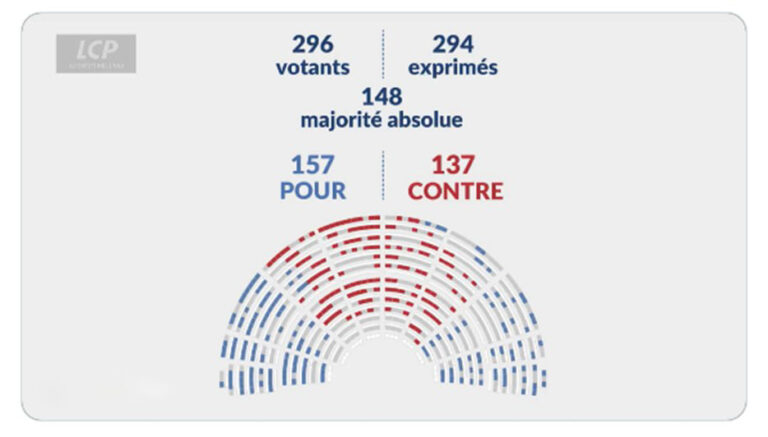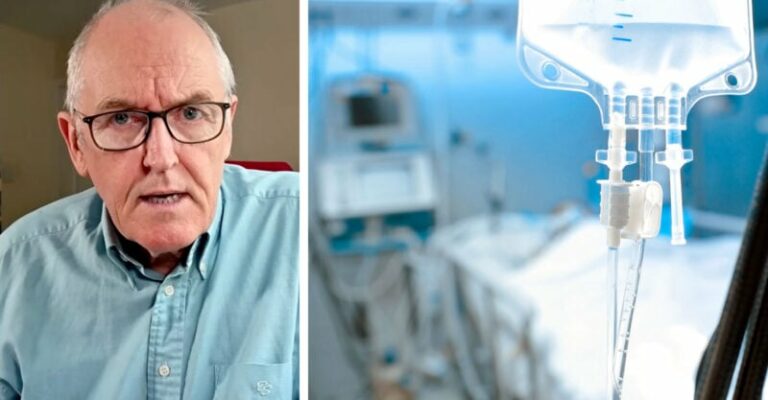Court Orders Merck to Turn Over Gardasil Adverse Event Databases
A North Carolina district court ordered pharmaceutical giant Merck to turn over all of its Gardasil adverse event databases to plaintiffs suing the pharmaceutical giant for injuries allegedly caused by the HPV vaccine.
A North Carolina district court ordered Merck to turn over all of its Gardasil adverse events databases to plaintiffs suing the pharmaceutical giant for injuries allegedly caused by the human papillomavirus (HPV) vaccine.
The databases, which include information from the Merck Adverse Event Reporting and Review System (MARRS) — Merck’s version of the Vaccine Adverse Event Reporting System (VAERS) — should contain all of the reports pertaining to Gardasil adverse events submitted by physicians, patients and publications, plaintiffs’ attorney Michael Baum told The Defender.
In his March 20 order, U.S. District Judge Robert J. Conrad, Jr., said, “Plaintiffs’ and their experts should have the same opportunity as Merck to review and analyze the entirety of the data.”
Merck until now has refused to make the entire MARRS databases available to the plaintiffs’ attorneys.
Gardasil is a widely used vaccine commonly administered to teens and young adults before they are sexually active to protect against HPV infections, which can be sexually transmitted later in life.
HPV infections may lead to the development of cervical cancer. However, most infections are benign and resolve on their own.
The firm Wisner Baum (formerly Baum Hedlund Aristei & Goldman) and Robert F. Kennedy, Jr., Children’s Health Defense chairman-on-leave, have filed more than two dozen lawsuits on behalf of young people injured by Gardasil, alleging Merck knowingly and fraudulently concealed the vaccine’s risks.
The lawsuits are some of the more than 80 pending in the federal court system, and that number is expected to grow. In August 2022, a judicial panel consolidated the lawsuits into a single federal courtroom.
Some of the signature impacts observed following HPV vaccination — which afflict a number of the plaintiffs — include permanently disabling autoimmune and neurological conditions such as postural orthostatic tachycardia syndrome (POTS), fibromyalgia and myalgic encephalomyelitis/chronic fatigue syndrome, The Defender Reported.
There have been thousands of reports of adverse events worldwide, peer-reviewed scientific literature from the U.S., Australia, Denmark, Sweden, France and Japan, and statistics published by public health agencies in each of these countries that demonstrate plausible associations between HPV vaccination and autoimmune conditions.
Merck maintains there is no safety signal in the data for autoimmune conditions. The plaintiffs allege Merck made this argument by discounting reports.
Baum told The Defender access to this full database of adverse event reports should allow experts to better analyze the full extent of post-Gardasil autoimmune symptom clusters, and demonstrate there is a “statistically significant causal connection between Gardasil and autoimmune conditions.”
Gardasil’s long history of autoimmune adverse events
While Merck markets Gardasil as “safe and effective,” safety signals emerged even early, during the vaccine’s clinical trials. However, the U.S. Food and Drug Administration (FDA) granted the vaccine Fast Track approval after only a six-month review process.
In 2006, Gardasil was licensed across the U.S. and Europe. But within a few years, reports of serious adverse events appeared — first in the media and then in academic journals.
In 2013, Gardasil was responsible in the U.S. for three-fifths of all serious vaccine reactions reported in young women under age 30, including 64% of deaths and 81% of cases of permanent disability.
Similarly, disproportionately high rates of adverse events were reported in Australia, Japan, and other European countries at that time.
Yet in 2014, the FDA approved a new version of the vaccine, the nine-valent Gardasil 9. And in 2016 — when GlaxoSmithKline (GSK) withdrew its poorly competing bivalent HPV vaccine Cervarix from the U.S. market — Gardasil 9 became “the only game in town.”
Gardasil 9 is FDA-approved for males and females ages 9 through 45 years.
In 2015, because of the high number of serious adverse events reports in Denmark and around the world, the Danish Health and Medicines Authority asked the European Commission to investigate the relationship between Gardasil and serious adverse events.
Several months later, the European Medicines Agency (EMA) — a European equivalent to the FDA — issued a report concluding there was no link between HPV vaccines and serious neurological adverse events.
But a leaked, confidential EMA document showed substantial disagreement among the agency’s experts.
An article published in The BMJ Evidence-Based Medicine also revealed the EMA made its evaluation based on flawed data and analysis provided by vaccine manufacturers, dismissed compelling evidence from independent researchers and the Uppsala Monitoring Centre, and sought input from experts with financial conflicts of interest, in violation of its own rules.
Given the ongoing safety concerns associated with the revelations of the EMA’s flawed study, Rebecca Chandler et al. conducted further research on the link between the HPV vaccine and autoimmune disorders, which was published in Drug Safety in 2017.
Autoimmune disorders can be difficult to identify and take a long time to diagnose because they are typically characterized by combinations of a wide range of symptoms that can be linked to a number of illnesses.
Any one symptom on its own may not provide enough information to alert a physician to the underlying cause.
To identify autoimmune disorders associated with the HPV vaccine, Chandler and her team did a cluster analysis of VigiBase, the World Health Organization (WHO) international database of suspected adverse drug reactions.
They conducted a statistical analysis of reports on HPV adverse events, looking for clusters of symptoms associated with autoimmune conditions like POTS, CRPS and CFS — rather than looking only for cases where an autoimmune disorder was definitively diagnosed — and found statistically significant rates of serious adverse events associated with Gardasil.
It is one of several recent studies linking Gardasil with autoimmune issues.
As part of this now-consolidated lawsuit, the plaintiffs have been seeking access to Merck’s database for several years in order to do a cluster analysis on all of the data Merck has collected.
Suing Big Pharma for vaccine injury difficult — but possible
Vaccine makers can be held liable for injuries caused by a fully licensed vaccine — unless that vaccine is added to the CDC’s childhood vaccination schedule.
The HPV vaccine is listed on that schedule.
People injured by vaccines listed on the childhood schedule can seek compensation through the taxpayer-funded National Vaccine Injury Compensation Program (VICP), a no-fault alternative to the traditional legal system for resolving vaccine injury claims.
But many people are unaware that claimants who are dissatisfied with the outcome of the VICP process can sue the pharmaceutical company directly in civil court, as long as that claimant completed the VICP process.
Baum told The Defender that the VICP has paid out more than $70 million to people making claims regarding Gardasil, but that over the last few years, they stopped making payments for autoimmune conditions, without explanation.
The lawsuits against Merck alleging the HPV vaccine caused debilitating autoimmune complications are a result of this process.
Baum also told The Defender that a claimant has only three years from the onset of symptoms to file a complaint, but because autoimmune disorders are challenging to diagnose, many people are not diagnosed until the statute of limitations has expired.
Originally published by The Defender
Suggest a correction






